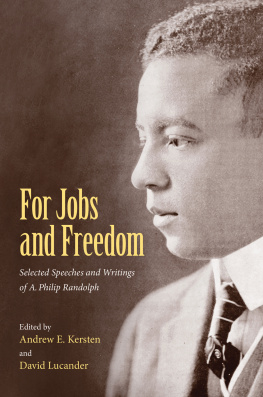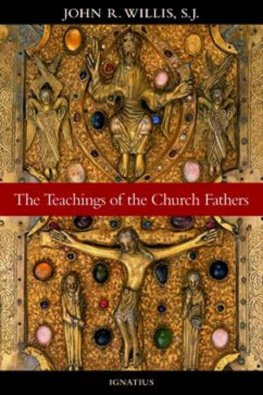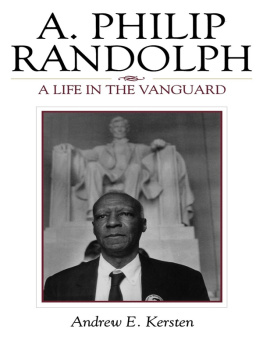A. Philip Randolph - For Jobs and Freedom: Selected Speeches and Writings of A. Philip Randolph
Here you can read online A. Philip Randolph - For Jobs and Freedom: Selected Speeches and Writings of A. Philip Randolph full text of the book (entire story) in english for free. Download pdf and epub, get meaning, cover and reviews about this ebook. year: 2014, publisher: University of Massachusetts Press, genre: Politics. Description of the work, (preface) as well as reviews are available. Best literature library LitArk.com created for fans of good reading and offers a wide selection of genres:
Romance novel
Science fiction
Adventure
Detective
Science
History
Home and family
Prose
Art
Politics
Computer
Non-fiction
Religion
Business
Children
Humor
Choose a favorite category and find really read worthwhile books. Enjoy immersion in the world of imagination, feel the emotions of the characters or learn something new for yourself, make an fascinating discovery.
- Book:For Jobs and Freedom: Selected Speeches and Writings of A. Philip Randolph
- Author:
- Publisher:University of Massachusetts Press
- Genre:
- Year:2014
- Rating:4 / 5
- Favourites:Add to favourites
- Your mark:
- 80
- 1
- 2
- 3
- 4
- 5
For Jobs and Freedom: Selected Speeches and Writings of A. Philip Randolph: summary, description and annotation
We offer to read an annotation, description, summary or preface (depends on what the author of the book "For Jobs and Freedom: Selected Speeches and Writings of A. Philip Randolph" wrote himself). If you haven't found the necessary information about the book — write in the comments, we will try to find it.
For Jobs and Freedom: Selected Speeches and Writings of A. Philip Randolph — read online for free the complete book (whole text) full work
Below is the text of the book, divided by pages. System saving the place of the last page read, allows you to conveniently read the book "For Jobs and Freedom: Selected Speeches and Writings of A. Philip Randolph" online for free, without having to search again every time where you left off. Put a bookmark, and you can go to the page where you finished reading at any time.
Font size:
Interval:
Bookmark:


Copyright 2014 by University of Massachusetts Press
All rights reserved
Printed in the United States of America
ISBN 978-1-62534-116-7 (paper); 115-0 (hardcover)
Designed by Jack Harrison
Set in Adobe Minion Pro
Library of Congress Cataloging-in-Publication Data
Randolph, A. Philip (Asa Philip), 18891979.
[Works. Selections]
For jobs and freedom : the selected speeches and writings of A. Philip Randolph /
edited by Andrew E. Kersten and David Lucander.
pages cm
Includes bibliographical references and index.
ISBN 978-1-62534-116-7 (pbk. : alk. paper) ISBN 978-1-62534-115-0 (hardcover : alk. paper)
1. United StatesRace relations. 2. United StatesEconomic conditions.
3. African AmericansCivil rights. 4. Civil rights movementsUnited States.
5. Brotherhood of Sleeping Car Porters.
I. Kersten, Andrew Edmund, 1969editor. II. Lucander, David, 1980editor. III. Title.
E185.97.R27A25 2014
305.800973dc23
2014026025
British Library Cataloguing-in-Publication Data
A catalogue record for this book is available from the British Library.
Publication of this volume and other titles in the series In the Spirit of W. E. B. Du Bois, edited by
John H. Bracey Jr., is supported by the Office of the Dean, College of Humanities and Fine Arts,
University of Massachusetts Amherst.
PUBLICATION OF THESE PAGES
IS SUPPORTED BY A GRANT FROM
JEWISH FEDERATION OF GREATER HARTFORD
To my wife, Vickie, and my daughters, Bethany and Emily
A. E. K.
To Kamal Ali and Joan E. Fuller, because you dedicated
so much to making opportunities for others
D. L.
If there is anything more reprehensible than the practice of discrimination
upon a people because of race, color, religion, national origin or ancestry,
it is for the people discriminated against to accept it without protest or
resistance. It is an evidence of an utter lack of self-respect, the most
priceless possession an individual or a group can have, without
which there can be no human dignity.
A. PHILIP RANDOLPH, 1959
Contents
A Note from the Editors on the Text and Sources
The primary sources assembled in this book were collected from various archives, presidential libraries, public records, newspapers, journals, and other publications. Our unwieldy short list of favorite documents was well over two hundred. When transcribed, this tallied nearly one million words. Difficult choices were made while cutting this project down to size. Serious Randolph scholars will notice that relatively few samples of his private correspondence are included. These files are voluminous enough to fill another book, and they offer an insiders view on how Randolph worked as an organizer. Instead, we chose to emphasize Randolphs public life, because this aspect of his career is what solidified his enduring place in history.
As editors, we sought to make this book useful for professional historians, classroom teachers, and general readers. As such, slight revisions were made to the text in order to modernize the works for contemporary audiences. Examples include removing the word And at the beginning of sentences, modifying verb tenses, and adding words such as the or a to smooth out syntax. Through it all, we were careful to retain Randolphs authentic voice. If not in the original document, the first names of historical figures were placed in [brackets], as were occasional transitional words or phrases that help with sentence structure. The use of an ellipsis (...) signifies that portions of the text were cut from the original document. Commas were added or removed to smooth out the syntax and make it more readable, but we retained the Oxford comma that Randolph used throughout his life. Capitalization and spelling were standardized throughout the text, but variations of the words Race and Negro appear in the original case that Randolph used them.
Acknowledgments
Institutional support for this project came from University of Wisconsin-Green Bay, the Center for Excellence in Teaching and Learning at Rockland Community College, and a National Endowment for the Humanities seminar hosted by the W. E. B. Du Bois Institute at Harvard University.
Bruce Wilcox, former director of the University of Massachusetts Press, was an exceptionally supportive and attentive editor. Carol Betsch and Mary Bellino moved the manuscript through production, and Barbara Folsom lent her editorial eye toward the improvement of the text.
Clayola Brown at the A. Philip Randolph Institute graciously gave her blessing early on, and Bill Fletcher Jr. was instrumental in the formative stages of this project. This would be a very different book without their backing.
Many archivists and librarians helped along the way, but a few standouts must be recognized. Tammy K. Williams at the Harry S. Truman Presidential Library and Museum graciously tracked down documents from afar, and Virginia Letwick at the Franklin D. Roosevelt Presidential Library and Museum lent her expertise. Sarah Levy at Rockland Community College tracked down hard to find sources with her usual efficiency. We also appreciate Jeff Brunner and Mitchell Scott at the University of WisconsinGreen Bays Cofrin Library for their assistance.
Andrew Kersten would also like to thank his History Seminar from the Spring of 2011. The following helped transcribe dozens of documents: Jessie Baehman, Amanda Becks, Casey Berg, Jessie Claymore, Aaron Damrau, Mathew De Meuse, Taylor Duxbury, Michael Gabriel, Angela King, Jennifer Kupsky, Danielle Le-Fevre, Alex Leonhard, Samantha Machalik, Stephanie Miller, Johnathan Nelson, Sara Rogatzki, Dave Starkey, Thomas Sutphin, David Tucker, Brooke Uhl, Megan Whelan, and Thai Xiong.
A number of scholars read sections of this book, gave their opinions, shared resources, and helped shape this project. Although far from comprehensive, the following deserve recognition for their contributions: Shawn Leigh Alexander, John Bracey, Bruce Delfini, Collette Fournier, Erik S. Gellman, Rhonney Grant, Andrew Jacobs, Clarence Lang, Shamika Mitchell, Christina Roukis-Stern, James Smethurst, Jeanne Theoharis, Christopher Tinson, Kimberley Weston, and Thai Xiong.
David Lucander would like to thank Ursula Lucander for being a supportive spouse, insightful editor, and masterful typist.
Andrew Kersten would like to thank the three women with whom he livesVickie, Bethany, and Emilyfor their support of yet another book project.
Introduction
This book is the first of its kind dedicated to the ideas of A. Philip Randolph, a charismatic civil rights and labor movement leader whose words inspired many to push forward an agenda set on advancing the interests of working-class African Americans. Randolphs lengthy involvement as an activist and intellectual spanned six decades that encompassed the years from the First World War through the end of the 1960s. During that time, he contributed to the transformation of American democracy by championing the causes of equal opportunity and democracy for all Americans. Randolphs success as a leader rested in part on his ability to organize and inspire those around him to do exceptional work. The speeches and writings chosen for this book exemplify the many ways in which Randolph understood key events of the twentieth century and used his influence to convince others of joining the various causes he supported. These documents provide a portrait of a trenchant intellectual who committed his life to fighting inequality and unfairness. Randolph was a politically engaged thinker who had prescient insights about the effect of racism on American society, and he acted to solve the social, political, and economic crises that bigotry and discrimination caused.
Next pageFont size:
Interval:
Bookmark:
Similar books «For Jobs and Freedom: Selected Speeches and Writings of A. Philip Randolph»
Look at similar books to For Jobs and Freedom: Selected Speeches and Writings of A. Philip Randolph. We have selected literature similar in name and meaning in the hope of providing readers with more options to find new, interesting, not yet read works.
Discussion, reviews of the book For Jobs and Freedom: Selected Speeches and Writings of A. Philip Randolph and just readers' own opinions. Leave your comments, write what you think about the work, its meaning or the main characters. Specify what exactly you liked and what you didn't like, and why you think so.






